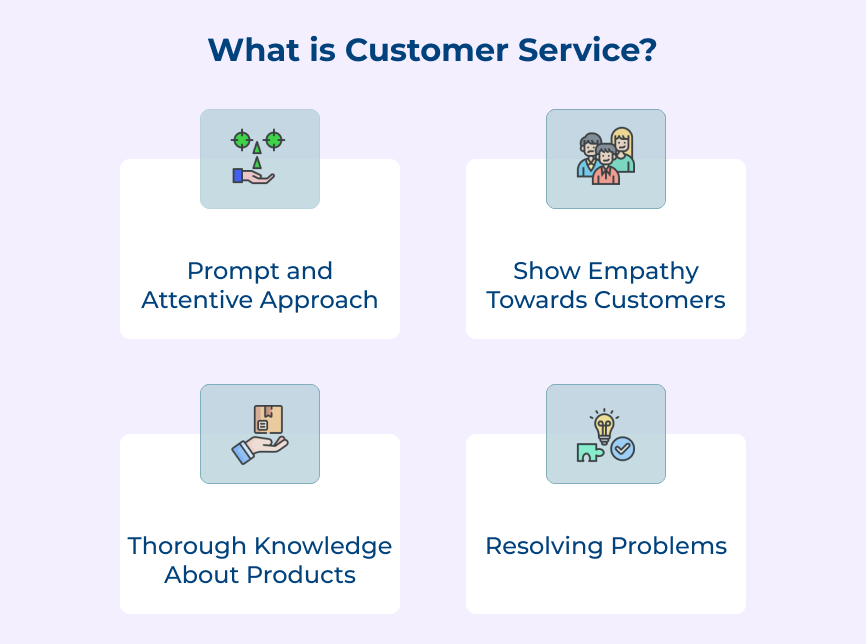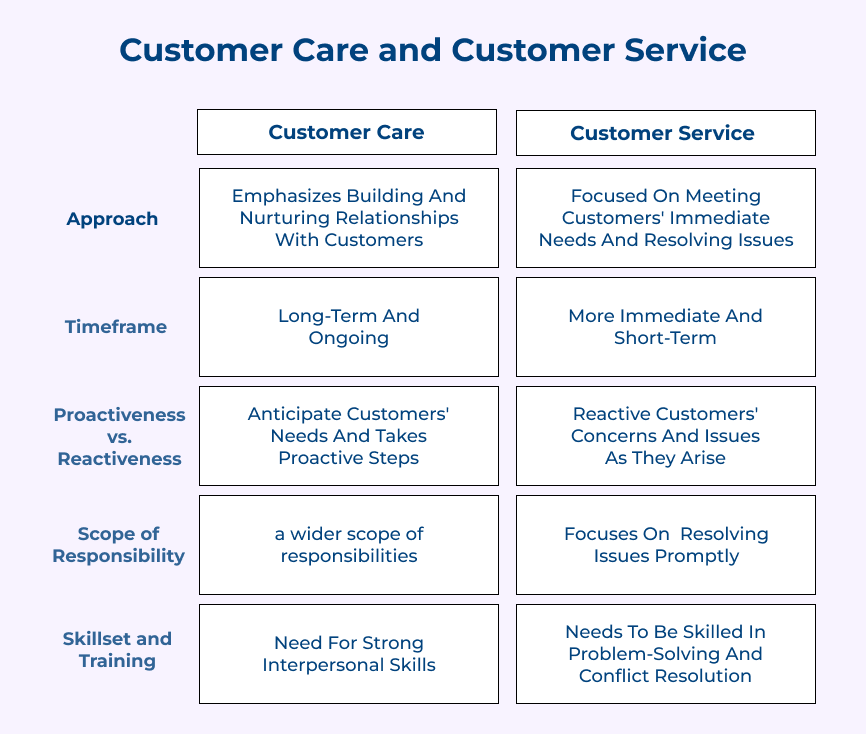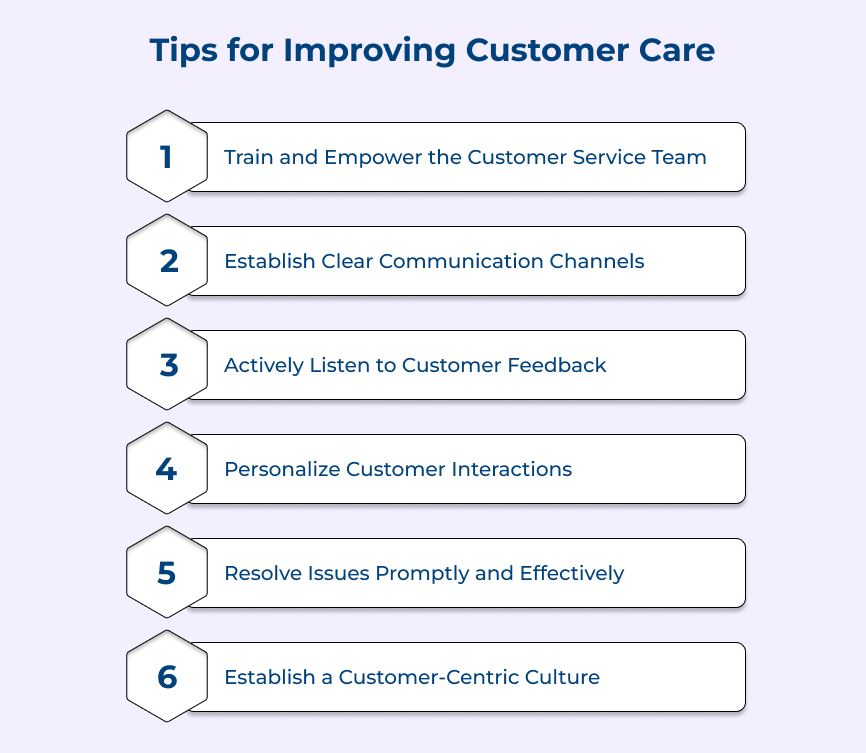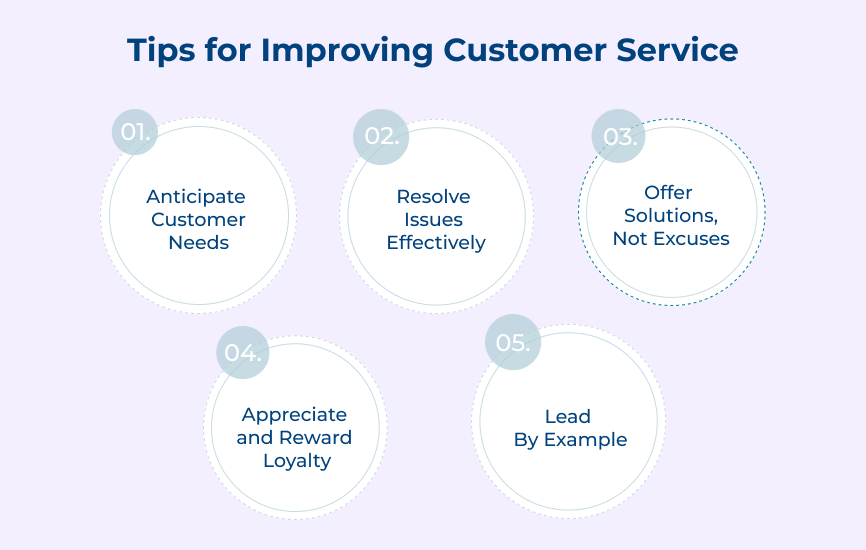1. Scope
Customer care focuses on maintaining relationships with customers, understanding their needs, and ensuring their overall satisfaction. One of the major distinctions on customer care vs custom service is that customer care goes beyond the transactional aspect and takes into account the emotional connection of the customer.
Customer service is more transactional, focusing primarily on addressing specific inquiries or complaints of customers. The scope of customer care is wider and encompasses the entire customer experience. Customer service is more focused on resolving specific problems and providing immediate assistance.
2. Proactiveness vs. Reactiveness
Customer care is centered around being proactive. It involves anticipating the needs of customers and taking action to meet those needs before they arise. Proactive customer care entails reaching out to customers, offering assistance and providing solutions before any concerns are raised. It demonstrates a commitment to customer satisfaction and shows that the business is proactive.
Customer service is often reactive. It involves addressing customers’ concerns and resolving issues after they have surfaced. Reactive customer service primarily focuses on resolving problems and ensuring customer satisfaction post-purchase. While it is important, it may not leave customers feeling truly valued or taken care of.
3. Relationship Building
Customer care is focused on building strong and lasting relationships with customers. It goes beyond the transactional nature of customer service and aims to create a personal connection. Customer care involves understanding each customer’s unique preferences, anticipating their needs and providing proactive support. Customer care is about making the customer feel valued and establishing trust in the brand.
Customer service is a more transactional approach in nature. It focuses on providing prompt and efficient assistance to customers during their interactions with the brand. It is primarily reactive and aims to resolve issues or answer queries. Customer service is essential in maintaining customer satisfaction and resolving any problems that may arise.
4. Time Frame
Customer care is characterized by a long-term time frame, emphasizing building relationships and ongoing support. It focuses on establishing trust and loyalty by providing continuous assistance to customers. Customer care representatives are often available 24/7 and are dedicated to resolving issues promptly while facilitating a positive customer experience.
Customer service typically operates within a shorter time frame, focusing on immediate problem-solving. Customer service representatives are primarily concerned with responding to inquiries, handling complaints and ensuring customer satisfaction in the present. The emphasis is on resolving current concerns rather than long-term relationship building.
5. Emotional Component
Customer care places a strong emphasis on empathy and understanding toward the customer’s emotions. It focuses on building a strong rapport and connection with the customer, ensuring that their concerns are acknowledged. Customer care representatives aim to create a positive emotional experience for the customer, making them feel valued and heard.
Customer service tends to focus more on the practical aspects of problem-solving and providing solutions. While customer service representatives are still expected to be polite and helpful, the emotional component may not be as prioritized as in customer care. The main objective of customer service is to effectively resolve the customer’s issue or answer their questions efficiently.
Tips for Improving Customer Care
Following are the practical tips for improving your customer care initiatives, helping you transform one-time clients into loyal advocates.















